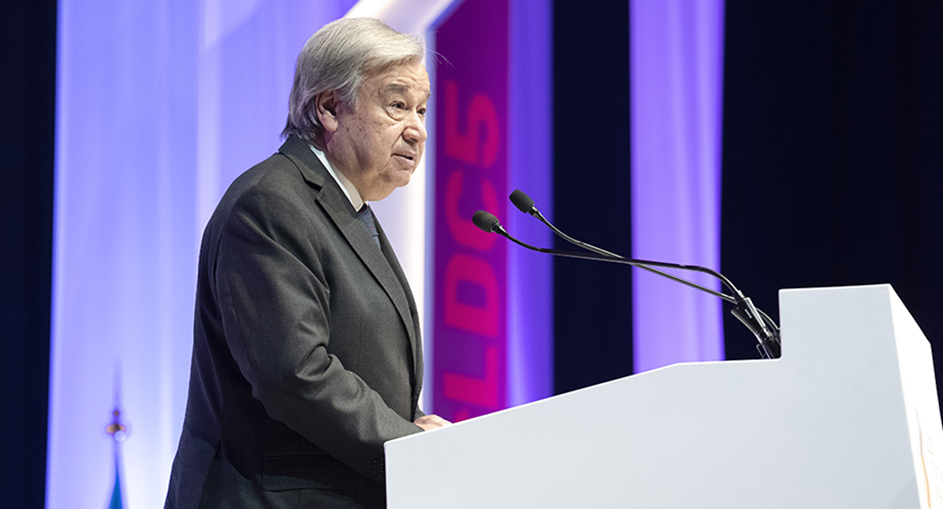Participants in the seventh high-level round table meeting, held within the framework of the activities of the Fifth United Nations Conference on the Least Developed Countries, today, stressed the need to mobilize resources and strengthen global partnerships for sustainable development.
The discussion focused on the importance of strengthening traditional and innovative sources of financing, simplifying and introducing new tax policies, promoting domestic and foreign investments, managing public debt, and providing targeted financing at the level of lending with regulatory tools that ensure sustainability.
HE Minister of Planning and Development at the Federal Democratic Republic of Ethiopia Fitsum Assefa stressed the importance of enhancing global partnerships to support LDCs. She noted that these countries are similar in terms of their resource and access to foreign capital. She also highlighted the importance of addressing the international financial structure in terms of depleting the scarce resources of the least developed countries. She pointed out that domestic resources, despite their increase year after year, are limited, compared to the gross domestic product, especially when compared to the standards of sub-Saharan countries, noting that international aid is the largest source of external financing.
The International Monetary Fund’s Special Representative to the United Nations Robert Powell stressed the fund’s commitment to supporting LDCs to finance development goals.
He pointed out that LDCs suffer from high inflation, the repercussions of the pandemic, and the Russian-Ukrainian crisis, which makes it difficult to achieve the 2030 economic development plans, pointing out that public financing depends on tax resources; Therefore, the well-being of the population is linked to the ability of the state to mobilize resources and spend them appropriately, especially since these public resources contribute to implementing the goals of sustainable development, as well as financing services, reducing inequality, changing housing behavior and partnerships, and facilitating the macroeconomic circle.
On debt, he stressed that debt risks are still high in the least-developed countries and low-income countries, pointing to the importance of debt restructuring in an effective manner. He added that The IMF and the World Bank are seeking to convene a joint meeting of public and private debtors to assess vulnerabilities and determine the best way forward.
Minister for Foreign Affairs and International Cooperation of the Republic of Benin Aurelien Agbenonci said that the Doha Programme of Action (DPoA) represents an opportunity to provide sustainable solutions. He stressed the importance of focusing on mobilizing national resources.
For his part, HE Minister of Foreign Affairs of the Republic of Mali Abdullah Diop stressed the importance of improving resources and introducing reforms to administrative, tax and financial systems, such as supervision and control of transactions, combating corruption, and building good governance, as well as the importance of rethinking and reconsidering global governance and restructuring, in terms of the effects of the imbalance having repercussions on the least developed countries, as well as canceling debts or restructuring them. Structuring it, avoiding aid and replacing it with foreign investments and effective partnerships.
(QNA)







